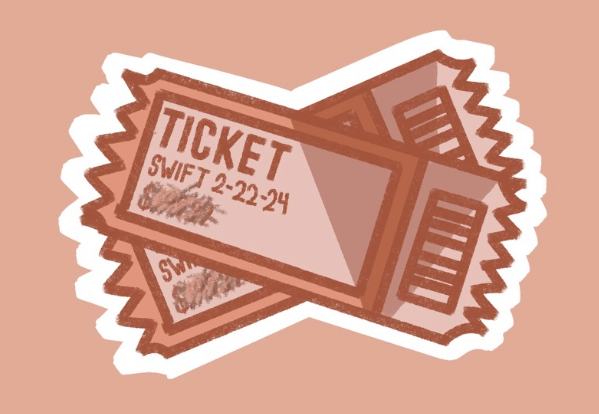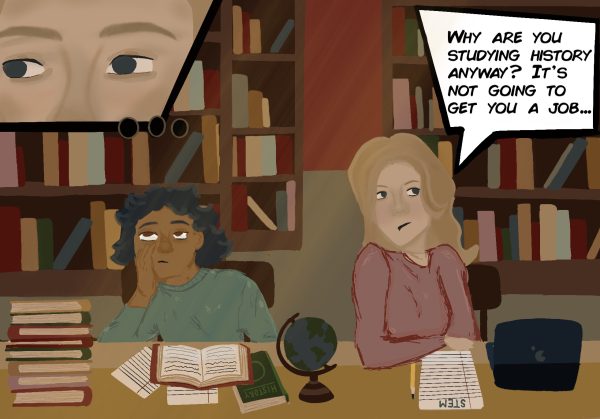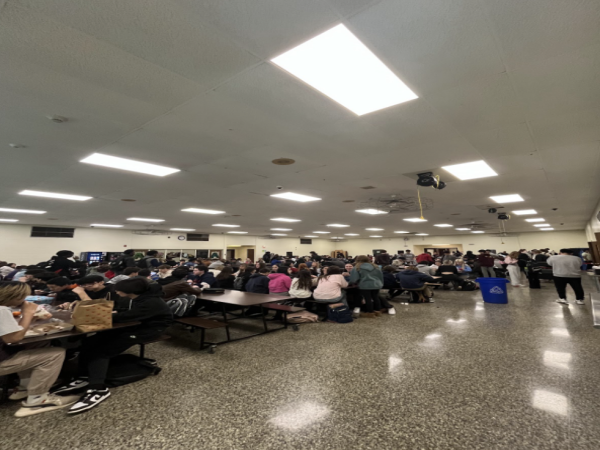CON: African American History Course Requirement

Students may need time to focus on classes other than the requirements.
The decision to make African American History a graduation requirement was a long battle students from the African American Club advocated for to be in place. The students’ voices proved triumphant, expressing their concerns and finally getting the forgotten history of African Americans in the classrooms. From a bird’s eye view, this decision seems empowering and effective. But, this decision contains many flaws that can affect students day to day mental and physical well being.
African American studies has been added on to the long list of required electives; further dragging students away from choosing electives they are interested in. Visual Performing Arts, 21st Century and career life skills, and Financial literacy all must be taken in order to graduate. Every student is different, but we’re held to the same requirement regarding electives. Picture a student who is interested in STEM, but is being forced to take a 3D art class, or in contrast a student interested in Art required to take a computer class. Instead of being able to pursue electives that we’re interested in, we are bound by requirements. The addition of an extra history class certainly doesn’t help. Electives are meant to be in place to allow students to pursue their interests, not add on to their already stressful course load. The African American studies course being available to students is enough. African American studies being a graduation requirement ruins the aspect of authentic learning and causes the richness of the content to be downplayed by students. Previously, students took African American studies because they were interested in learning, but now it has become something that feels ingenuine and forceful. Some students will be in that classroom not because they’re interested in the topic, (which should be the case in elective courses), but because they have to be. Who is going to learn better; a student who is forced to take a class or a student who opted into the class with their own free will?
For many students, African American history is a topic that they haven’t explored in depth. While it’s important to get more eyes on a past that is transitioning into being forgotten, the pressure of having to take multiple history classes throughout the year along with a English class could prove to be stressful. Also, with the requirement being put into place next year, the challenge of acclimating from online learning to in-person schooling is daunting enough and the addition of another history elective will certainly be overpowering.
From personal experience, this takes a toll on your mental and physical health. This past semester, I took African American studies. I took the class due to my drive to learn more about the rich culture of Africa that has been kept under ropes my entire schooling career. I enjoyed the class, but it was quite exhausting. US History, Language Arts, and African American studies were a lot to handle. I found myself having difficulty to fully grasp things occasionally. When reflecting on a culture as overwhelming as African history, confusion and stress will only lead to a building resentment towards a class that inherently is meant to be enjoyable.
The decision to make African American studies a graduation requirement is admirable and inspiring, but forcing students to take a class that they are not interested in will not be an outlet of change, but rather a stress inducer. Instead, increased activities and events would better transition students into the world of African American history rather than placing them into a pressure filled classroom environment. It’ll be interesting to see the updated content of the course and how it draws uninterested students in, but until then African American studies being a graduation requirement is ultimately flawed.







